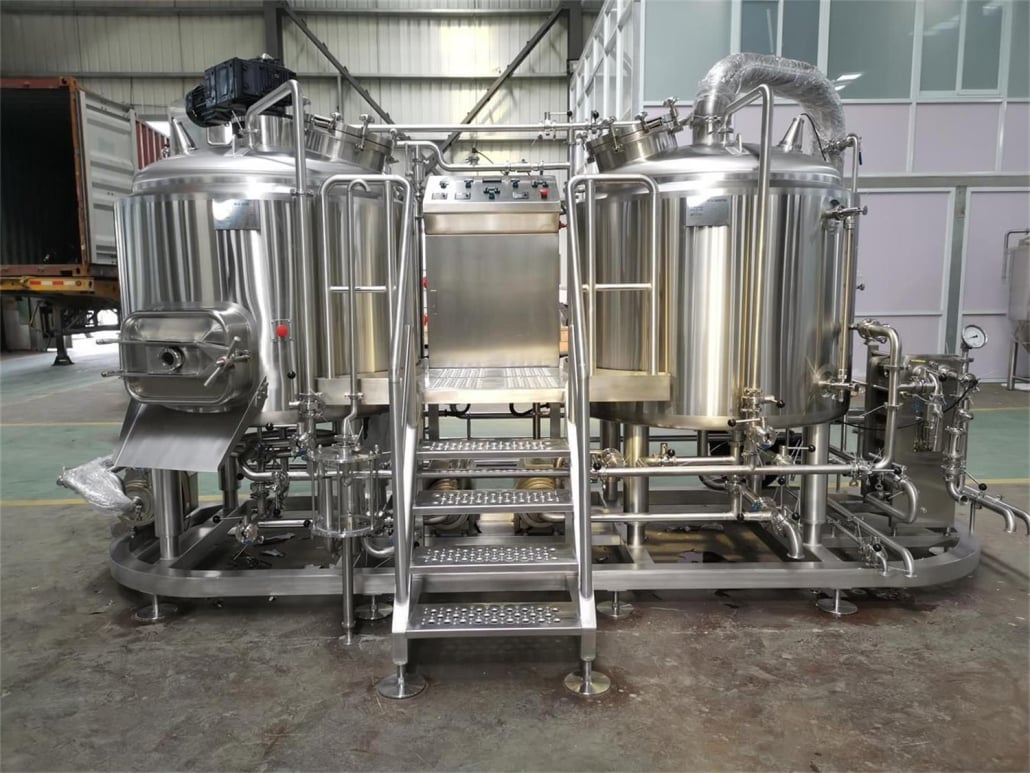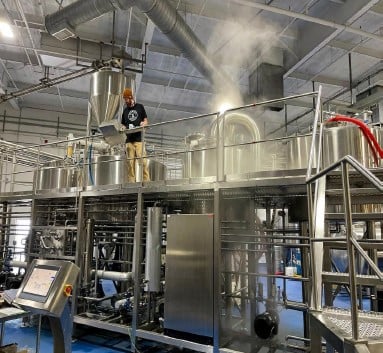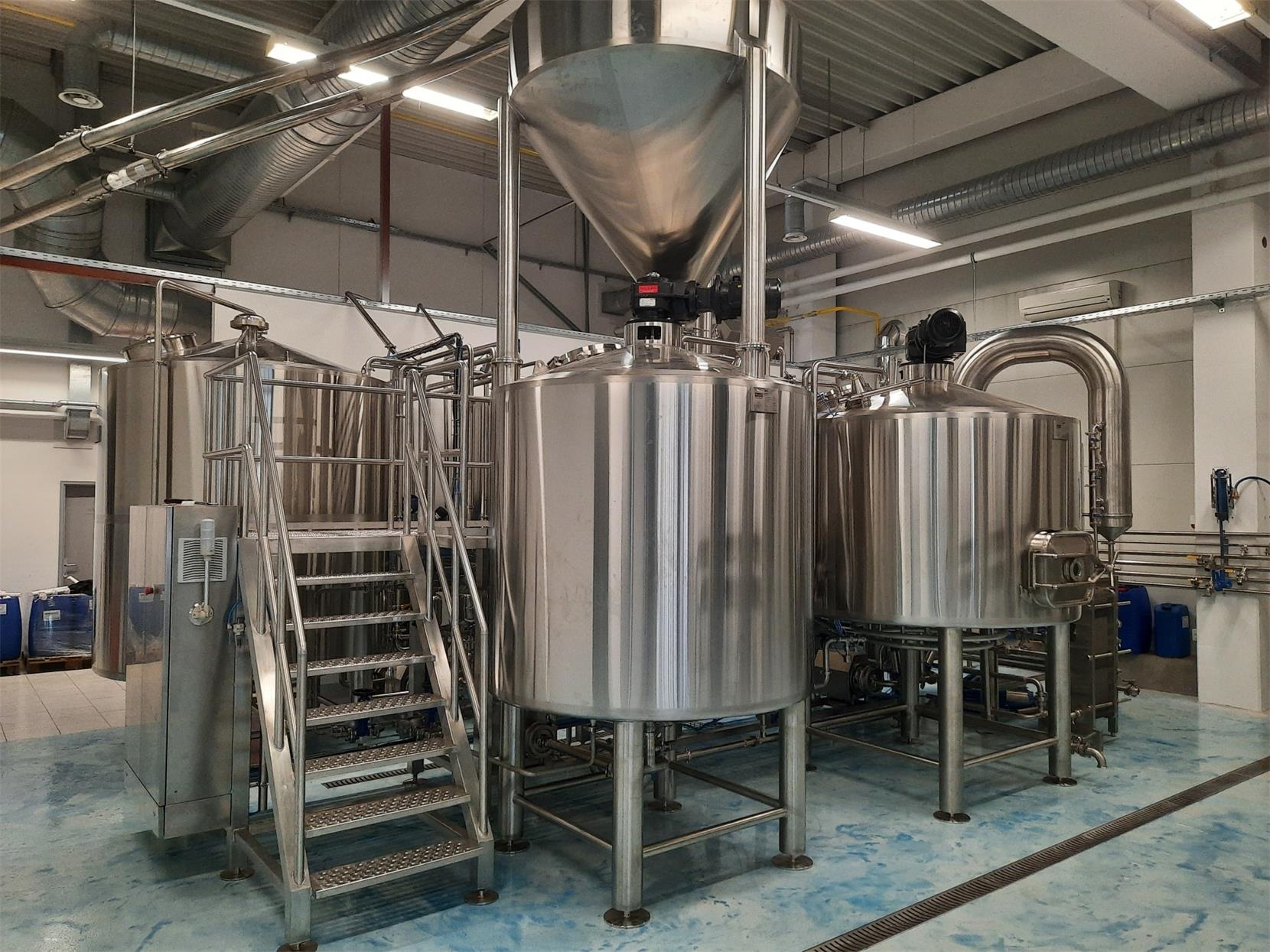Stout Tanks Malt Mill
A malt mill is an essential piece of equipment for any brewery or homebrewer looking to crush malt grains in preparation for mashing and lautering. This guide provides a comprehensive overview of Stout Tanks malt mills, covering types, design, customization options, installation, operation, maintenance, suppliers, pricing, and more.
Overview of Stout Tanks Malt Mills
Stout Tanks is a leading manufacturer of brewing equipment including malt mills designed specifically for crushing malt grains into grist for the mashing process. Their malt mills are robust, heavy duty and engineered to produce a consistent crush for efficient extraction of sugars from grain.
Benefits of Stout Tanks Malt Mills:
- Heavy duty construction for durability
- Adjustable rollers to customize crush grain size
- Large 3 roller configuration maximizes crush efficiency
- Optional accessories for automation and portability
- USA manufactured with global distribution and support
Key Specifications:
| Parameter | Details |
|---|---|
| Construction Material | 304 or 316 Stainless Steel |
| Drive System | Direct Drive 1-3HP Motor |
| Roller Size | Up to 8″ Diameter x 32″ Length |
| Capacity | Up to 2000 lb/hr |
| Roller Gap Range | 0.010 – 0.100 inches |
| Malt Feed Hopper Capacity | 30-100 lb |

Types of Stout Tanks Malt Mills
Stout Tanks offers multiple malt mill models with different design and capacity options:
Table: Stout Tank Malt Mill Models
| Model | Motor Size | Production Rate | Hopper Capacity | Dimensions |
|---|---|---|---|---|
| Mini Mill | 1 HP | 500 lb/hr | 30 lb | 25x20x60 inches |
| Standard Mill | 3 HP | 1500 lb/hr | 100 lb | 48x24x60 inches |
| Production Mill | 5 HP | 2000 lb/hr | 100 lb | 48x30x72 inches |
Common Features:
- 3 stainless steel rollers for crushing malt
- Hardened steel or ceramic roller mills
- Front mounted adjuster knob for roller gap setting
- Dual outlet design allows double run if needed
- Removable hopper, motor and rollers for cleaning
- Industrial duty with 24/7 operation rating
Specialty Models
- Gravity Discharge Mills
- Custom Hopper Sizes
- Inspected Models for Export
- Automated Mills with Electronic Controls
Stout Tanks Malt Mill Design & Customization
Stout Tanks mills provide a modular platform to customize for specific production needs:
Table: Stout Tanks Malt Mill Design & Layout
| Design Aspect | Options |
|---|---|
| Number of Rollers | 2 or 3 rollers |
| Roller Material | Hardened Steel or Ceramic |
| Drive System | Belt, Gear or Direct Drive |
| Motor Size | 1hp, 3hp or 5hp |
| Roller Dimensions | 6″, 8″ or 12″ diameter; width up to 36″ |
| Roller Gap Range | 0.010 – 0.100 inch precision |
| Malt Feed System | Hopper, Conveyor or Automated |
| Milling Operation | Batch or Continuous |
| Control System | Basic or PLC/Automation |
| Hopper Size | 30lb to 500lb Capacity |
| Portability | Caster Wheels or Stationary |
| Safety Features | Hopper Grid, Guards, Emergency Stops |
| Certification | Export Crates, CE/UL 508A, ASME BPE, ISO 9001 |
Customization:
- Roller materials for food safety
- Variable Frequency Drives
- Integrated hopper scales
- Specialty local panels
- Interchangeable rollers
- Metric frame sizes
- Quick disconnect hoses
Stout Tanks engineers can customize mills along any parameters based on capacity, space, layout, safety, and budget needs of the brewery. This flexibility and quality manufacturing allows optimal configuration for reliable grain crushing.
Stout Tanks Malt Mill Suppliers & Pricing
Stout Tanks sells malt mills directly through regional dealers and representatives:
Table: Stout Tanks Malt Mill Suppliers
| Region | Vendors |
|---|---|
| United States | Stout Tanks, MoreBeer, Adventures in Homebrewing |
| Canada | Ontario Beer Kegs, Noble Grape |
| Australia & New Zealand | Keg King, Keg Land |
| Europe | The Malt Miller, Brewers Hardware |
| Model | Motor Size | Average Price Range |
|---|---|---|
| Mini Mill | 1 HP | $1600 – $2000 |
| Standard Mill | 3 HP | $4000 – $5500 |
| Production Mill | 5 HP | $6500 – $8500 |
Pricing varies based on specifications chosen but all equipment includes a 1 year manufacturer’s warranty on parts. Contact your local dealer for quoted pricing on custom options, shipping fees, and local service packages. Consider the desired production capacity and efficiency required to determine the ideal malt mill model for your system.
Installing and Operating Stout Tanks Malt Mills
Proper installation and operation ensures optimum performance and safety:
Table: Stout Tanks Malt Mill Installation & Operation
| Parameter | Guidelines |
|---|---|
| Location | Indoor, dust free, non-slip flooring, adequate ventilation, access to power supply |
| Setup | Level unit, anchor hopper and adjust roller gap |
| Safety | Ensure guards installed, post safety procedures, use dust collection |
| Operation | Wear PPE, feed hopper evenly, monitor amperage load, adjust gap as needed |
| Maintenance | Inspect and replace wear items regularly (belts, bearings, rollers), keep unit clean |
| Efficiency Check | Verify grain crush size post-milling via sieving |
Ideally locate the malt mill in an enclosed mill room with dust collection running during operation. Make sure staff are properly trained on standard operating procedures. Perform regular maintenance and inspections to maximize efficiency and equipment lifespan. Adjust the roller gap based on malt variety to optimize extraction efficiency.
Choosing a Stout Tanks Malt Mill
Consider the following when selecting a Stout Tanks grain mill:
Table: How to Choose a Stout Tanks Malt Mill
| Decision Factor | Details |
|---|---|
| Production Volume | Match model capacity to batch sizes; scale up power and hopper as needed |
| Malt Varieties | Adjustable rollers to tune crush for different grain types |
| Automation Needs | Gravity discharge, integrated scales, variable frequency drives |
| Available Space | Dimension restrictions, indoor vs outdoor, dust collection |
| Budget | Compare models on price, production efficiency and options |
| Local Support | Verify dealer provides installation help, training, maintenance |
| Safety & Compliance | Explosion proof motors as needed, verification to standards |
| Milling Options | Alternative milling methods: hammer mills, roller mills, wet mills |
Thoroughly analyze your production requirements, space constraints, and budget to select the ideal Stout Tanks malt mill model. Prioritize efficiency, safety, and reliability in your purchasing decision.
Pros & Cons of Stout Tanks Malt Mills
Table: Advantages & Disadvantages of Stout Tanks Mills
| Pros | Cons |
|---|---|
| Durable stainless steel construction | High upfront cost of equipment |
| Precise roller gap adjustment | Regular maintenance required |
| Modular customization for any capacity | Potential dust hazards require mitigation |
| Heavy duty rollers provide consistent crush | Motors require special electrical install |
| Made in USA with great customer service | Limited suppliers in some regions |
| Interchangeable parts for easy repairs | Special training needed for safety procedures |
| Automation options for advanced functionality | Roller gaps need adjusting for malt varieties |
While Stout Tank mills require a significant capital investment, their extreme reliability, consistent performance, and custom brewery engineering make them a smart choice for commercial production scale mashing operations.

Frequently Asked Questions
What maintenance is required on a Stout Tanks mill?
Regular inspection, cleaning and replacement of wear items like belts, fasteners and rollers is needed. Monthly verification of roller gap and tension is recommended along with checking motor amp loading during operation for any issues.
What safety precautions should be used with these mills?
- Use dust collection system and wear respiratory protection
- Ensure guards are in place during operation
- Post safety procedures and provide staff training
- Install emergency stop buttons within easy access
- Verify electrical wiring properly grounded
What determines the roller gap setting?
It depends on the malt variety, with harder grains requiring a wider gap generally between 0.035 to 0.075 inches. Softer malts can use a tighter gap down to 0.015 inches. Sieve analysis of the grist is needed to confirm optimum extraction efficiency is achieved.
How much capacity is needed for a brewery?
Base the malt mill size on batch volumes required, number of turns per day, and allow 20-30% extra capacity. A typical 10 barrel brewhouse would need around 1500 lb per hour mill capacity for example. Scale the hopper, motor HP and automation features accordingly.
What options help automate the malt milling process?
Popular accessories are integrated hopper scales for batch recipes, motorized hopper dumps to feed the mill automatically, and electronic variable frequency drives for the roller speed. Gravity roller mills allow staging multiple mills in a vertical layout to save space.
Can other grains besides barley malt be crushed in a Stout Tanks mill?
Yes, these mills can crush alternative grains like wheat, rye, oats, corn and rice effectively as long as the proper hardness roller gap is set based on the grain texture and husk characteristics.
Conclusion
With heavy duty stainless steel construction and extreme reliability, Stout Tanks malt mills are a smart investment for commercial scale brewing systems requiring efficient grain crush for mashing. Their modular platform offers unparalleled customization to specification along with top-notch American manufacturing and customer support. While requiring safety precautions and regular maintenance, these mills drive quality and consistency in beer production – making your equipment purchase decision an easy one if brewing world-class craft beer is the goal.
Additional FAQs for Stout Tanks Malt Mill
1) What crush targets should I use with a Stout Tanks Malt Mill for best lautering and efficiency?
- Aim for 65–75% husk retention, 15–25% coarse grits, 5–10% flour by sieve. A typical roller gap starts around 0.035–0.045 in (0.9–1.1 mm) for standard 2-row barley; adjust by malt friability and lauter performance.
2) How do I calibrate and verify roller gap accuracy?
- Use precision feeler gauges across both roller ends with the lockouts engaged, then verify with a sieve test (ASBC Malt-4/Grain-4). Re-check after thermal cycles or bearing service. Log settings by malt lot to improve repeatability.
3) Can a Stout Tanks Malt Mill support wet conditioning (malt misting) to reduce dust and shattering?
- Yes, provided you use corrosion-appropriate materials and clean after use. Lightly mist malt to ~1–2% additional moisture, rest 10–20 minutes, then mill. Expect improved husk integrity and lower dust load. Confirm with your supplier re: warranty/cleaning requirements.
4) What motor control setup is recommended for consistency and safety?
- A VFD with soft start, overload protection, and E‑stop integration. Program an amperage alarm band to detect stones/bridging. For 3–5 HP systems, confirm proper breaker sizing, grounding, and lockout/tagout per NFPA 70.
5) How do I integrate dust collection and explosion prevention around the mill?
- Use local extraction at the hopper and discharge, conductive hoses, proper bonding/grounding, and Class II Div 2–appropriate components if required. Keep housekeeping strict. For high-risk environments, consult NFPA 61/652 and local AHJ.
2025 Industry Trends: Stout Tanks Malt Mill
- Data-driven milling: More brewhouses pair mills with inline scales and batch logging to correlate crush metrics with brewhouse efficiency.
- Safer mill rooms: Increased adoption of dust collection upgrades, bonded hoses, and interlocked guards to meet insurer/AHJ expectations.
- Wet conditioning on the rise: Small and mid-size breweries use misting to boost lauter speed on adjunct-heavy grists while reducing dust.
- Sustainability focus: Lower horsepower draw via optimized VFD profiles and preventative maintenance of bearings/rollers to cut energy use.
- Supply chain stability: Stainless pricing and lead times have normalized versus 2022–2023, with modest YoY price changes.
2025 Benchmarks for Stout Tanks Malt Mill Performance
| Metric | Typical 2025 Target | Notes |
|---|---|---|
| Brewhouse efficiency (well-tuned) | 78–86% | Depends on mash/lauter system |
| Standard roller gap (2-row barley) | 0.035–0.045 in | Verify by sieve, adjust per malt lot |
| Throughput (3 HP, dry) | 1,200–1,600 lb/hr | As-listed 1,500 lb/hr typical |
| Wet-conditioned throughput | −5% to −10% vs dry | Better husk integrity, less dust |
| Dust collection airflow | 250–500 CFM at pickup | Maintain >20 m/s duct velocity |
| Preventative maintenance interval | 250–500 operating hours | Bearings, belts, alignment check |
| Avg. 2025 price range (USD) | $1,600–$8,500 | By model/options (1–5 HP) |
Sources: Brewers Association (BA) safety/quality resources; ASBC Methods of Analysis; MBAA Technical Quarterly; vendor spec sheets and field reports (2024–2025)
Latest Research Cases
Case Study 1: Wet Conditioning Cuts Lauter Time on Adjunct-Heavy Grists (2025)
Background: A 15 bbl brewery using a Stout Tanks Standard Mill struggled with slow lauters on oat/wheat-heavy recipes.
Solution: Implemented malt misting to +1.5% moisture with a timed nozzle, rested grain 15 minutes, tightened gap from 0.042 to 0.038 in; added sieve verification each batch.
Results: Lauter time reduced 18%; brewhouse efficiency rose from 79% to 82%; noticeable reduction in dust and improved husk integrity on sieve images.
Case Study 2: VFD Monitoring Prevents Mill Jams and Motor Trips (2024)
Background: Intermittent motor trips due to hopper bridging and occasional stones caused downtime.
Solution: Added VFD amperage trending with alarm thresholds, hopper vibratory aid, and rare-earth magnet at intake; trained staff on rapid clear SOP.
Results: Unplanned stops dropped by 90% over 4 months; motor temp averaged 8–12°F lower; no bearing failures in the period.
Expert Opinions
- John Mallet, Brewing Operations Consultant; author, Malt: A Practical Guide from Field to Brewhouse
“Measure crush outcomes, not just gap numbers. Sieve data tied to lauter performance will make your Stout Tanks Malt Mill pay for itself.” - Dr. Michael J. Lewis, Professor Emeritus of Brewing Science, UC Davis
“Uniformity of grist is foundational. Stable motor control and clean, aligned rollers are the quickest path to consistent extract.” - Laura Ulrich, Senior Brewer and Pink Boots Society leader
“For modern adjunct-heavy grists, protect husks. Wet conditioning and careful gap control reduce stuck mashes and keep the brewhouse moving.”
Practical Tools and Resources
- Brewers Association – Safety, quality, and mill room guidance: https://www.brewersassociation.org
- Master Brewers Association of the Americas (MBAA) – Technical papers on milling/lauter: https://www.mbaa.com
- ASBC Methods of Analysis – Sieve analysis and extract methods: https://www.asbcnet.org
- NFPA 61/652 (summaries) – Combustible dust safety frameworks: https://www.nfpa.org
- ProBrewer – Mill setup discussions and vendor feedback: https://www.probrewer.com
- Brewfather / Brewer’s Friend – Batch logging to correlate crush with efficiency: https://brewfather.app | https://www.brewersfriend.com
Sources and further reading:
- Brewers Association Quality and Safety resources (2024–2025)
- MBAA Technical Quarterly articles on grist composition and lauter performance
- ASBC analytical methods for grist and extract
- Vendor manuals/specs for Stout Tanks Malt Mill models
Last updated: 2025-09-08
Changelog: Added 5 targeted FAQs; introduced 2025 performance and safety benchmarks with comparison table; included two recent case studies; curated expert viewpoints; compiled practical tools/resources with authoritative links.
Next review date & triggers: 2026-01-15 or earlier if updated Stout Tanks specifications release, new ASBC/MBAA milling guidance is published, or dust/explosion safety standards change affecting mill rooms.
Share this entry
Interested in learning more about Brewing Systems including additional details and pricing information? Please use the form below to contact us!
YOLONG BREWERY EQUIPMENT FAQS
- Commercial Brewery / Craft Brewery / Microbrewery / Nanobrewery
- What is The Difference Between Craft Beer and Industrial Beer?
- The Bespoke Differences In Custom Brewing Systems
- Everything You Need to Know About Kettle Souring
- How to Choose Brewing Equipment for Your business?
- How To Choose The-Best Partner To Build Your Commercial Microbrewing System?
- Two Detection Sensors That You Need To Use In Your Brewhouse System
- Remote Control Applications in Brewing Equipment/How does it work?
- How To Clean Your Brand New Brewery Tanks?

